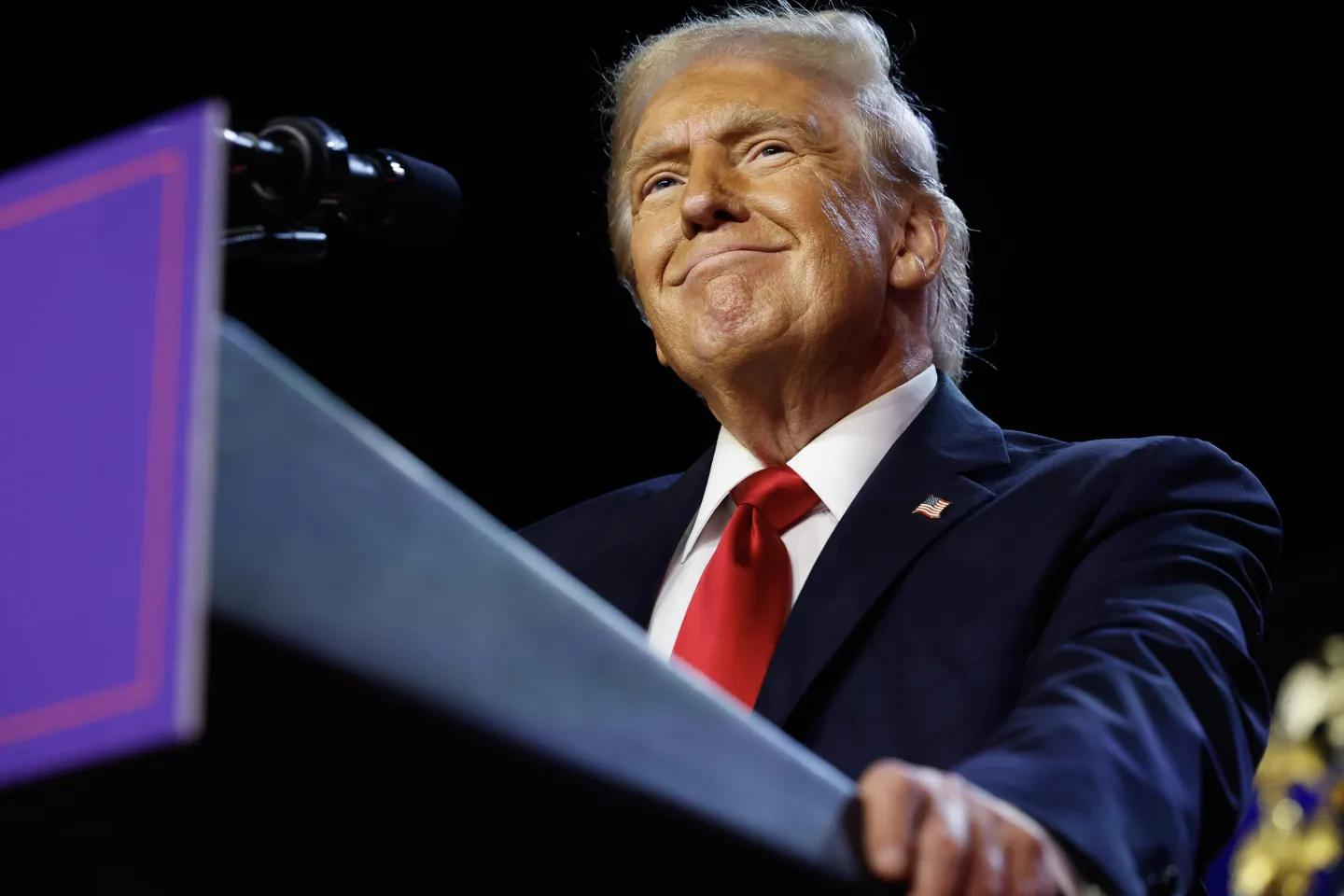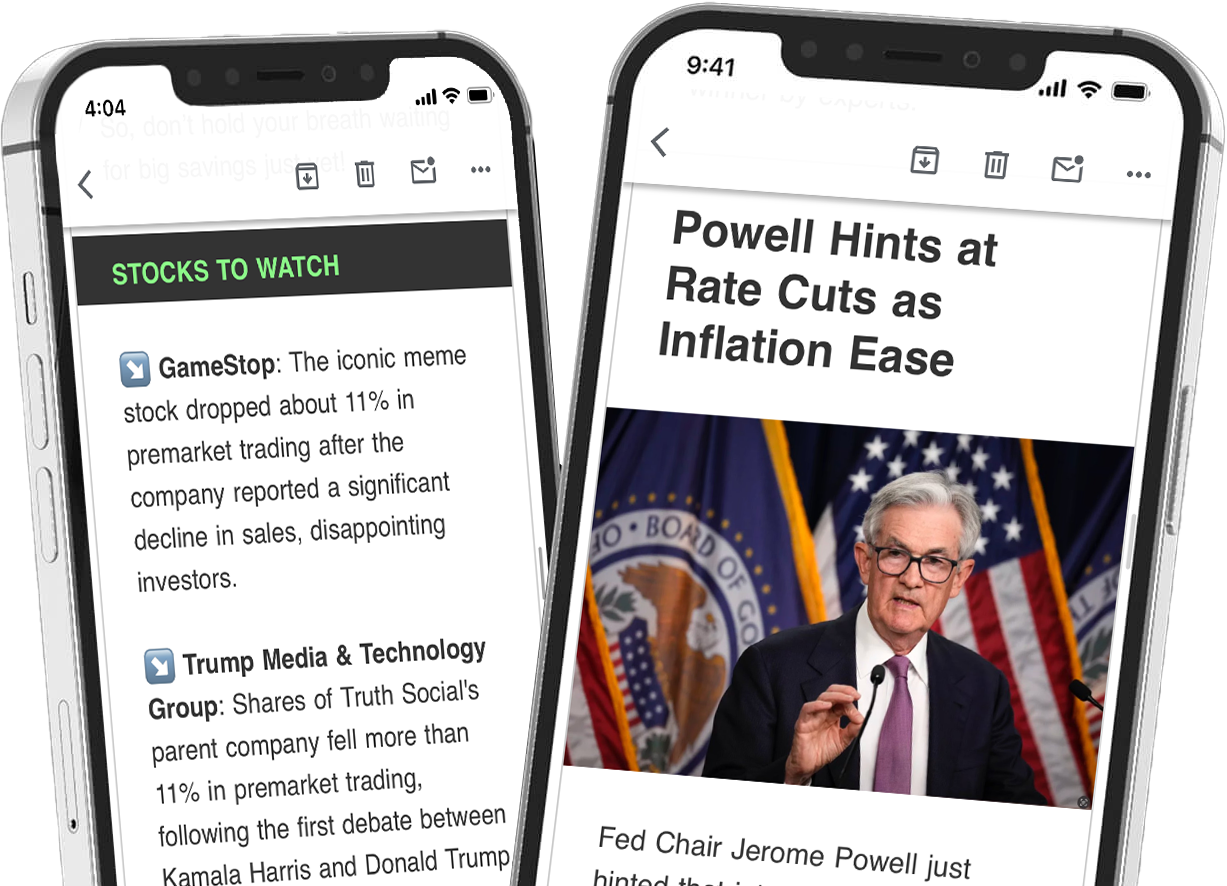Anna Moneymaker/Getty Images
- This post originally appeared in the Insider Today newsletter.
- You can sign up for Business Insider’s daily newsletter here.
Welcome back. The US is still coming to grips with the assassination attempt on former President Donald Trump.
In today’s big story, we examine the scrutiny the Secret Service is facing and what former special agents are saying about the tragedy.
What’s on deck:
- Markets: The S&P 500 will flatten out the rest of the year, according to one asset manager.
- Tech: Startup founders share what it’s like to work with Nvidia’s Jensen Huang.
- Business: Disney has a big problem: It’s running out of kids.
But first, what happened?
If this was forwarded to you, sign up here.
The big story
Examining a tragedy
Getty Images; Jenny Chang-Rodriguez/BI
As the shock subsides from the assassination attempt on former President Donald Trump, many Americans are wondering the same thing: How did this happen?
On Sunday, President Joe Biden said he ordered an independent investigation into Trump’s security detail at the rally, writes Business Insider’s Brent D. Griffiths.
That’ll mean more attention toward an agency that prides itself on operating behind the scenes. The Secret Service has faced questions about what it did (or didn’t) do that led to such a close call, write BI’s Katherine Tangalakis-Lippert and Lauren Edmonds.
Saturday was the closest assassination attempt of a US president or presidential candidate since President Ronald Reagan was shot in 1981.
But that’s not to say the Secret Service has avoided controversy over the last 40-plus years since the Reagan shooting. From hiring prostitutes in Colombia during a presidential visit to a knife-wielding intruder making it into the White House, the agency has faced numerous scandals, writes Brent.
Jabin Botsford/The Washington Post via Getty Images
Saturday’s assassination attempt, however, will be the agency’s biggest black eye in recent memory.
The gunman, identified by the FBI as 20-year-old Thomas Matthew Crooks, was only about 450 feet from Trump when he opened fire from the roof of a nearby building, writes BI’s Rebecca Rommen.
He used an “AR-style” rifle that was legally purchased, according to the FBI, and police found explosives inside his car.
At least one local officer reportedly encountered Crooks on the roof prior to the shooting, but retreated. Crooks was able to fire off three rounds before a counter-sniper returned fire, killing him.
The post-shooting response by Trump’s security detail was “textbook,” but things like the heat and staffing cost the team crucial seconds, a former special agent told BI’s Laura Italiano and Kenneth Niemeyer.
Ultimately, another former Secret Service agent said the entire event represents a failure for Trump’s security detail, BI’s Matthew Loh and Cameron Manley report.
And while Trump was able to escape relatively unharmed, at least one rallygoer was killed while two others were critically injured. Corey Comperatore, 50, was shielding his wife and daughters when he was killed, his family said.
News brief
Your Monday headline catchup
A quick recap of the top news from over the weekend:
- Biden in Oval Office address calls for calm, says political change happens ‘at the ballot box, not with bullets.’
- Alphabet is reportedly closing in on a $23 billion deal to buy cybersecurity startup Wiz.
- Shannen Doherty, ‘Beverly Hills, 90210’ and ‘Charmed’ star, dead at 53.
- The most immediate threat to China’s economy isn’t external. It’s internal.
3 things in markets
Kirill Kudryavtsev/Getty Images
- Russia may be staring down a recession. As the country’s energy revenues wane and it loses access to the dollar, it risks entering into a damaging recession. According to UC Berkeley economist Yuriy Gorodnichenko, it could happen within a year.
- The S&P might cool, but your investing opportunities don’t have to go with it. Goldman Sachs Asset Management’s investment outlook for the rest of the year is “a flattish market.” But even as the market comes back to Earth, the firm recommends allocations to things like fixed income and small-cap stocks.
- Earnings season could usher in the most painful correction in two years. The research firm NDR warned of a shift from accelerating to decelerating growth heading into 2025. Here’s what investors should look out for during the second-quarter earnings season.
3 things in tech
Michael M. Santiago/Getty, Tyler Le/BI
- Inside Nvidia’s AI startup empire. Nvidia CEO Jensen Huang is investing heavily in the AI startups revolutionizing Silicon Valley. Here’s what founders had to say about working with him as an investor.
- Europe’s crackdown on Elon Musk is getting out of hand. The European Commission doesn’t like the way Musk changed the X’s “blue check” program for “verified users.” But he shouldn’t necessarily be fined for it.
- Everyone is swooning over Sam Altman’s new ride. In April, a car enthusiast posted a video of Altman in a super rare Koenigsegg Regera. The Swedish supercars are some of the fastest street-legal cars — and can cost as much as $4.6 million.
3 things in business
iStock; Rebecca Zisser/BI
- If a show airs on Disney Channel but no kids watch it, did it really air at all? Kids used to grow up watching Mickey Mouse (or Hannah Montana, depending on your age group), but now they’re all on YouTube. That’s a big problem for Disney, which is losing its grip on the kids-entertainment market.
- A premature race to the finance finish line. Recruiting for finance jobs already happens extraordinarily early, and timelines for the most prestigious ones creep up every year. Now, to get an edge in applications for internships and first jobs, some college students are taking the industry’s most grueling exam before they even graduate.
- This chipmaker could be the David to Nvidia’s Goliath. The CEO of Cerebras is certain the AI chip market is bound to tilt in his company’s favor, despite Nvidia owning 90% of the market share. The startup could go public soon, and the match-up might be imminent.
In other news
- How to get Google’s free dark web report to see if your personal info is floating around the corners of the internet.
- Gen Z’s latest fashion hack is using iPhone Notes to plan outfits. Here’s how to do it yourself.
- My boss tried to trick me into staying at a job I hated. I interviewed behind her back and landed my dream role.
- How to get a job at Apple, according to tech career experts.
- Career coaches say it’s sometimes okay to use your nepo-baby advantages.
What’s happening today
- Goldman Sachs and other companies report earnings.
- GOP National Convention begins.
The Insider Today team: Dan DeFrancesco, deputy editor and anchor, in New York. Jordan Parker Erb, editor, in New York. Lisa Ryan, executive editor, in New York. Jack Sommers, deputy editor, in London. Annie Smith, associate producer, in London. Amanda Yen, fellow, in New York.










